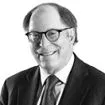Yesterday's arrest of a CNN news crew covering the riots in downtown Minneapolis presents a stark reminder to journalists everywhere of the perils of reporting the news in the midst of civil disturbances. And while the charges were appropriately dropped within hours, the live images of journalists handcuffed for doing their jobs were chilling.
FKKS frequently advises media organizations regarding what they can and cannot do in covering protests, riots and other emergency situations, as well as how journalists should handle themselves if they are arrested. In many such cases -unlike the situation in Minneapolis where Minnesota's governor quickly apologized - it takes months, substantial legal fees and multiple court dates for journalists to be cleared of wrongdoing.
The Arrests Followed a Familiar Pattern
The Minneapolis charges followed a familiar pattern: journalists are accused of interfering with public safety (or trespassing) because they are perceived to be in the wrong place or allegedly fail to heed police directions to move or stop filming. Oddly, although the journalists' affiliation with CNN was clear from their equipment and the footage shows that the lead reporter, Omar Jimenez, clearly identified himself, the Minnesota State Patrol's public statement claimed the charges were dropped once the news crew was "confirmed to be members of the media." The police did not disclose what additional "confirmation" they were unable to obtain before making the arrests.
If the State Patrol's statement was intended to suggest that journalists will be permitted to do their jobs if it is clear they are really journalists, it is welcome confirmation of the First Amendment rights of reporters.
Criminal Charges Take A Heavy Toll on Journalists
That the Minneapolis situation began and ended within hours contrasts directly with what happened with arrested journalists covering riots in Ferguson, Missouri in August 2014. For example, journalists from the Washington Post and the Huffington Post were arrested there in August 2014, but were not formally charged for a year and then had to wait until May 2016 for the charges to be dropped as part of a settlement of threatened legal claims.
Similarly, North Dakota police arrested a number of reporters in early 2017 at protests involving an oil pipeline on Native American land. There, journalists were charged with both trespassing - that is, being in a place police have declared off limits - or actually participating in the riots because they were in proximity to alleged rioters. Prosecutors have proceeded with numerous cases against journalists who were present at the protests.
Another recent example of the chill caused by arrests of journalists involves a reporter named Dan Heyman, who in early 2017 was in West Virginia and sought to question Health and Human Services Secretary Tom Price regarding health care. When Price did not respond, Heyman persisted. He was arrested and charged with a misdemeanor count of "willful disruption of governmental processes" for "causing a disturbance by yelling questions." Heyman was not only held in jail for hours, but faced charges for several months until West Virginia dropped the charges, only then admitting that Heyman's conduct, "while it may have been aggressive journalism," was "not unlawful."
The arrest, and immediate release, of the CNN news crew in Minneapolis should send a clear message to police and prosecutors in times of civil disturbances that infringing the rights of journalists who are present to record newsworthy events should be rarely used and based on more than police pique that journalists are present or are filming the unfolding events.
In the face of public animus against the media fueled by political rhetoric and other government intrusion and limitations on First Amendment-protected news-gathering, lawyers, including those at FKKS, play a major role in protecting journalists and allowing the public to see and hear important events for itself.
This alert provides general coverage of its subject area. We provide it with the understanding that Frankfurt Kurnit Klein & Selz is not engaged herein in rendering legal advice, and shall not be liable for any damages resulting from any error, inaccuracy, or omission. Our attorneys practice law only in jurisdictions in which they are properly authorized to do so. We do not seek to represent clients in other jurisdictions.
